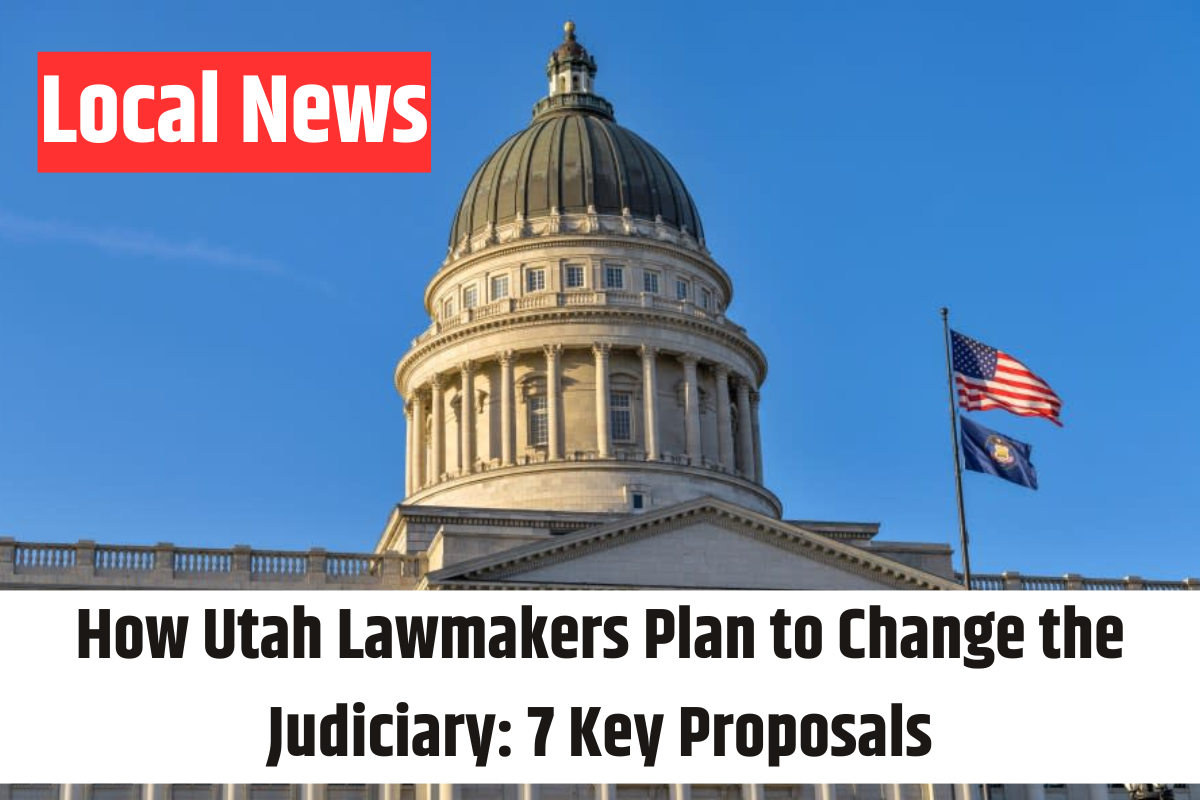
A wave of legislative proposals aimed at reshaping Utah’s judicial system is making its way through the state legislature, with measures that could alter the structure of the Utah Supreme Court, modify how judges are retained, and change when laws can be put on hold due to constitutional concerns.
The push for reform comes after controversial court rulings last summer that overturned Amendments A and D, both of which ran counter to legislative interests. While Utah House Speaker Mike Schultz vowed in the wake of those rulings to pursue judicial changes, Senate leaders insist these proposals are about improving efficiency and not political retaliation. They cite prolonged cases such as the state’s abortion trigger ban as examples of delays that need to be addressed.
“We’re not trying to undermine the judiciary,” said Senate Majority Leader Kirk Cullimore (R-Draper). “This is about ensuring all three branches of government function effectively.”
Despite these assurances, the Utah State Bar has voiced concerns, arguing that several proposals risk undermining the separation of powers and introducing politics into judicial decisions. Here are the key bills under consideration:
Expanding the Utah Supreme Court
A bill spearheaded by House Majority Leader Jefferson Moss (R-Saratoga Springs) proposes increasing the number of justices on the Utah Supreme Court. The exact number has yet to be determined.
Moss contends that the expansion would alleviate increasing caseloads and legal complexities that have slowed court processes.
“The Legislature has the authority to adjust the court’s size in response to growing demands,” Moss stated.
Changing the Chief Justice Appointment Process
Another proposal, Senate Bill 296, would alter how Utah’s Chief Justice is selected. Currently, Supreme Court justices elect their chief among themselves to serve a four-year term. If passed, the bill would grant the governor the power to appoint the Chief Justice with Senate confirmation.
Sponsored by Senate Majority Whip Chris Wilson (R-Logan), the measure aims to align Utah’s selection process more closely with the federal model.
“This would give citizens more input through the confirmation process,” Wilson explained, emphasizing that the change is intended as a policy improvement rather than a critique of the current court.
Legislative Oversight of Judicial Retention
A proposed bill, House Bill 512, seeks to establish a legislative committee to provide recommendations on whether judges up for retention should remain on the bench. These recommendations would appear on ballots alongside existing evaluations from the Judicial Performance Evaluation Commission (JPEC).
Supporters say the measure would give voters additional insights, but critics, including the Utah State Bar, worry that it could pressure judges to cater to political interests rather than uphold impartial rulings.
Raising Retention Election Standards
Under current law, Utah judges only need a simple majority of votes to retain their positions. House Bill 451, introduced by Rep. Jason Kyle (R-Huntsville), would increase the required approval threshold to 67%.
The bill has not yet moved forward in the legislature.
Limiting Injunctions Against State Laws
Senate Bill 204 aims to restrict lower courts from issuing injunctions to halt laws they deem unconstitutional. Under this proposal, state defendants would have the right to appeal any injunction that blocks a law from taking effect.
Bill sponsor Sen. Brady Brammer (R-Pleasant Grove) argues that lower courts have overused injunctions against laws passed by the legislature. The Utah State Bar initially opposed the measure but has since adopted a neutral stance.
Time Constraints on Constitutional Challenges
Senate Joint Resolution 009 would require parties challenging a law’s constitutionality to file for an injunction within 28 days of the legislative session’s conclusion.
Proponents believe this would prevent last-minute legal maneuvers that delay laws from taking effect, but opponents argue that imposing strict deadlines could undermine due process.
Restricting Third-Party Legal Standing
Finally, Senate Bill 203 seeks to narrow who has the legal right to challenge laws in court. The bill would place stricter requirements on associations filing lawsuits on behalf of their members.
Sen. Brammer, the bill’s sponsor, contends that limiting third-party standing would prevent courts from becoming a battleground for out-of-state interests while maintaining individuals’ access to justice.
The Utah State Bar opposes the bill, asserting that it attempts to alter longstanding legal principles regarding who has standing to sue.
Looking Ahead
While none of these bills have been enacted, several are advancing through the legislative process. The debate over these measures highlights the ongoing tensions between Utah’s legislative and judicial branches, raising questions about the future balance of power in the state’s government.







